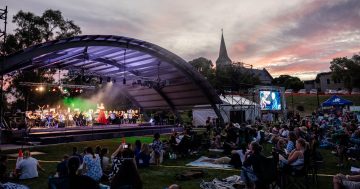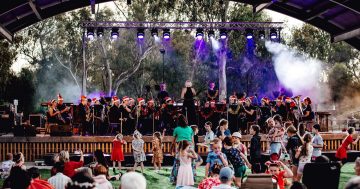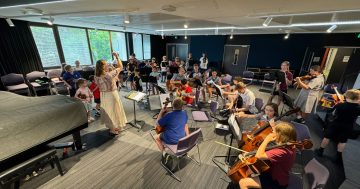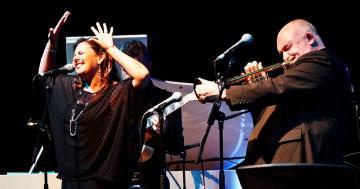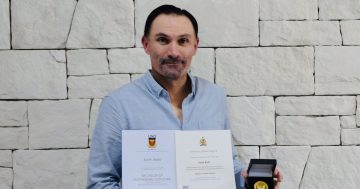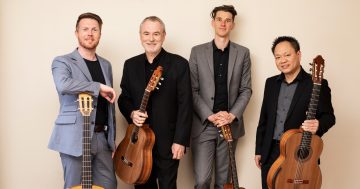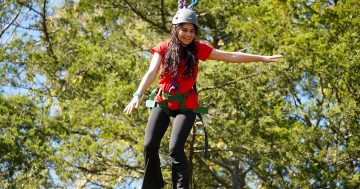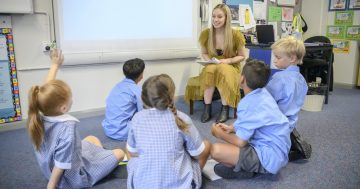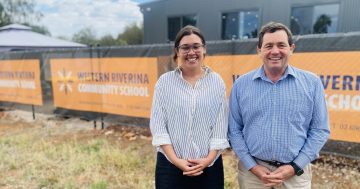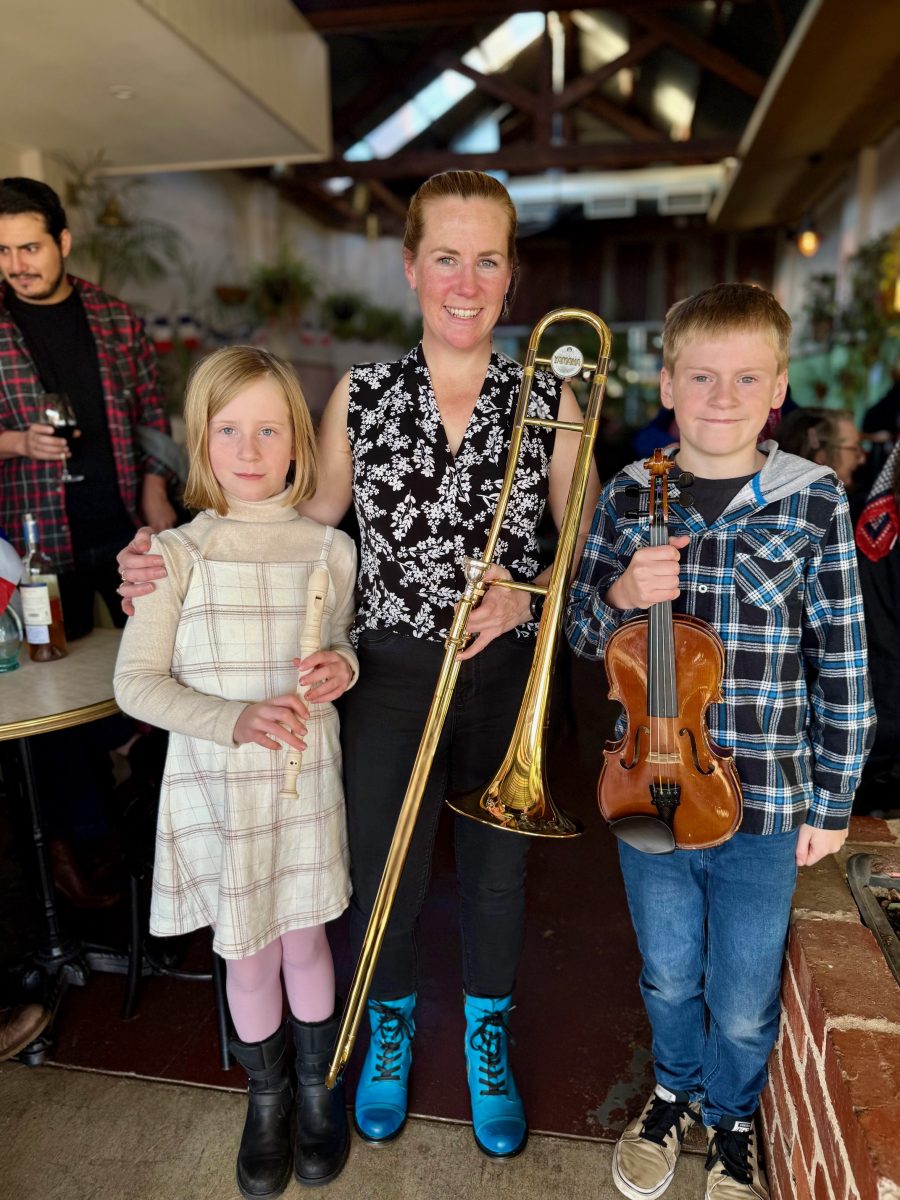
Music lovers Tamara Spencer and her children, Evelyn, 9, and Issac, 12. Photo: Marguerite McKinnon.
A new study into the benefits of playing a musical instrument is validating what local teachers have been saying for years – it can have a profound impact on students’ intellectual, emotional, and social growth.
Australia’s Edith Cowan University has published a study of 30 international academic sources that found music should be an “essential” part of child development, rather than “just a nice-to-have activity” because of the critical benefits to student wellbeing.
Canada’s University of British Columbia researched more than 100,000 students and stated that, “Students who learned to play a musical instrument in elementary, and continued playing in high school, not only score significantly higher but were about one academic year ahead of their non-music peers with regard to their English, mathematics and science skills.” These exam-based statistics, “were consistent across the board, regardless of socioeconomic background, gender, ethnicity, or prior learning in science, math, and English”.
The Riverina Conservatorium of Music’s head of brass, woodwind and percussion, Tamara Spencer agrees.
“Kids love music. They love performing. They’ll complain about practising but you know they do love it, and all the research shows how beneficial music is to the growing brain,” Ms Spencer said.
Tamara’s love of music began as a child in a small community where music was a part of life, but opportunity was limited.
“I grew up in Ungarie and we didn’t really have much access to formal music education there, so I would have to travel to Wagga once a month in my high school years to come and have a trumpet lesson,” Ms Spencer said.
Now a teacher of several instruments including the trumpet, Tamara has shared her love of music with her children, Evelyn, 9, and Isaac, 12, both of whom play musical instruments.
The Riverina Conservatorium of Music is on a mission to bring the benefits of music to students through music education programs at nine government schools, and 10 non-government schools, in the Riverina.
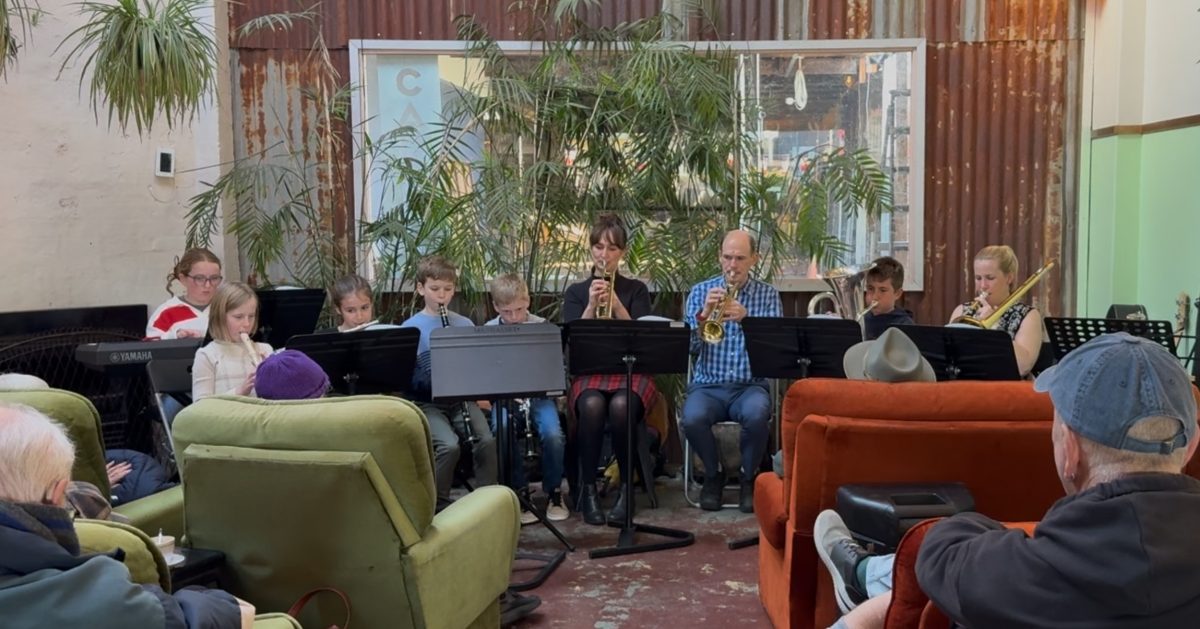
Music students such as these Wagga performers have an edge over others according to multiple worldwide studies into the benefits of learning and playing music. Photo: Marguerite McKinnon.
Multiple studies over the years prove that playing music improves focus, reduces stress, and enhances cognitive skills.
With other regions experiencing cuts to music programs, the Riverina Conservatorium of Music is sending accredited music teachers into schools to deliver curriculum-focused lessons to students weekly.
“And that’s something that we’re lucky to be able to offer, but overall, music is struggling because the education at a tertiary level for the teachers is just not supported the way it could be,” Ms Spencer said.
“All the way through primary school when I was at school, singing was a normal part of the school routine, whereas now that’s just died out, and it’s a big loss to kids because it means when they come to music education they’re starting a little further behind than people of our generation,” she said.
“I guess it’s just a societal shift in our priorities, but we are doing what we can to try and keep music alive.”
Head of the British Columbia University study, Peter Gouzouasis, said schools often cut music resources to allow a focus on maths, science and English, but ironically, “music education, such as multiple years of high-quality instrumental learning and playing in a band, or orchestra, or singing in a choir at an advanced level — can be the very thing that improves all-around academic achievement and an ideal way to have students learn more holistically in schools.”







